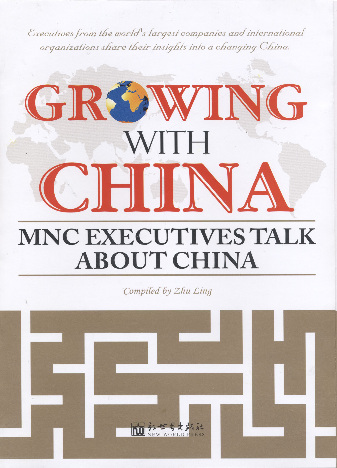
Excerpt 1| Excerpt 2 | Excerpt 3 | Excerpt 4
Author: Zhu Ling
Publisher: New World Press (2008)
Language: English
Price: 78 yuan
ISBN: 978-7-80228-992-5
It is often said that each and every foreign enterprise in China has made a contribution in one way or another to the success of the country's economic reforms in the past 30 years. They have, indeed, all played a key role in driving the rapid pace of industrialization, which has brought unprecedented prosperity in its wake. Vastly improved living standards have created a strong demand for goods and services, which, in turn, have brought unmatched opportunities for many multinational companies to make sound profits, part of which has undoubtedly been reinvested in research and development for better products and services.
The list includes companies in different industries and service sectors. Some came to manufacture, either on their own or in joint ventures with domestic enterprises. Others came to sell their products, and, in some cases, helped create markets that did not exist before. Moreover, there were those who came to render special services, and, in the process, helped promote the standard of such services in China. Since the beginning of economic reforms, China has welcomed investors and traders from other economies, regions and countries on the principle of mutual benefit.
The rapid industrialization of the Pearl River Delta (PRD) Region in Guangdong Province, initially driven mainly by the capital from Hong Kong manufacturers and exporters, is a case in point. It created the platform that eventually made PRD a world-famous industrial powerhouse, and, in the process, generated sufficient wealth to facilitate Hong Kong's smooth transformation into a high-value-added financial and service center. The modern automobile industry in China can be said to have been built on the investment and expertise of foreign carmakers in joint ventures with their respective domestic partners. Most major car makers from the US, Europe and Japan have benefited from the explosive growth of the domestic market. Their Chinese partners, meanwhile, have gained financial resources and secured the technological know-how to develop own-brand models for the domestic market. Some domestic carmakers are now aggressively exploring opportunities of exporting to the United States and Europe. Foreign companies have also played a key role in the development of China's services sector. Nearly all major international hotel chains own and/or operate properties in various cities on the mainland. Four major international accounting firms have contributed directly and indirectly to the rise of the standard of corporate governance, enabling many mainland enterprises to tap the resources of the world's major capital markets. The distribution and retail sector has also benefited from the foreign hypermarket chains that have helped fundamentally change the shopping habits of millions of Chinese consumers in cities. As an active participant in the epic economic reform that China has shepherded, every one of these multinational companies has a fascinating story to tell. Among the companies featured in the series are Airbus, Siemens, BASF and Mercedes-Benz from Europe, GE and HP from the US, Toshiba and Fujifilm from Japan, and Nokia from Finland.
(China.org.cn December 2, 2008)